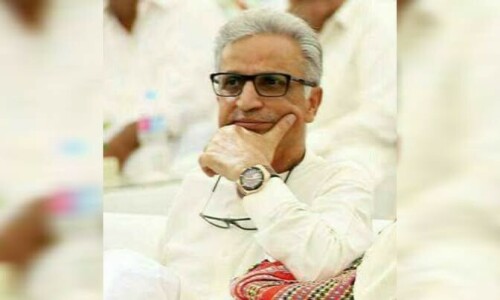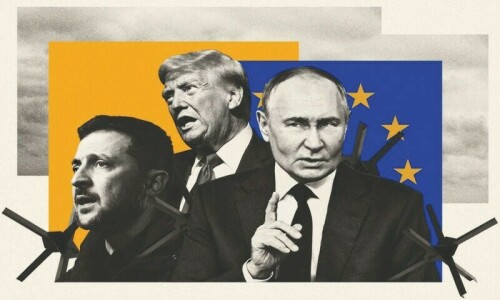A SENSE of panic is evident in the markets as the government continues to issue vague signals about its plans for plugging the growing external sector deficit and arrest the accelerating slide of the foreign exchange reserves.
Monday saw an intensifying sell-off in the stock market that fell by 1,328 points, with most stocks hitting their lower locks, and accompanied by unusual movements in the currency markets as well.
Dealers and brokers pointed to Prime Minister Imran Khan’s statement that Pakistan may have to approach the IMF for a bailout.
The statement was vaguely worded, and couched in fiery talk of ending corruption and searching for looted wealth stashed abroad, which fed further anxiety in the markets about whether or not the government has a clear policy direction at the top.
Mr Khan talked about reaching out to overseas Pakistanis for help as well as locating and bringing back looted wealth stashed abroad as a panacea for the economy’s twin deficits throughout his campaign trail, as well as after coming to power.
But the markets are not comforted by this talk, because they know that such moves can never plug the deficits, and certainly not in the time required.
Then clarity arrived in what appeared to be a hurriedly crafted press release on Monday, which announced unequivocally that “the government has decided to approach the IMF for stabilisation and an economic recovery programme”.
This admission has been weeks in the making and the delay in the announcement may have contributed to market uncertainty.
Now that it is finally out, the markets will no doubt search for further clarity on the shape of the stabilisation programme that will emerge from the talks set to begin in Bali in a few days.
What needs no searching, however, is the immense pressure that has built up in government accounts at various points.
This past week also brought news of a report, for example, drafted by a panel of senators, many from the PTI, which concluded that the government had no choice but to enact a circular debt settlement of up to Rs400bn in order to keep the power sector running.
This may well be necessary, and the next clock to start ticking on a massive government decision could be on the circular debt.
The question is, how will the IMF see such an operation? Now that the government will be in programme talks with the Fund, its opinion on the use of government resources to settle power-sector arrears will be important.
And if the Fund demands in return that the bill be borne by consumers and not the government, there could well be a second bitter pill to swallow.
The delay in the decision has done no service to the government, and now speed is of the essence.
Published in Dawn, October 9th, 2018













































